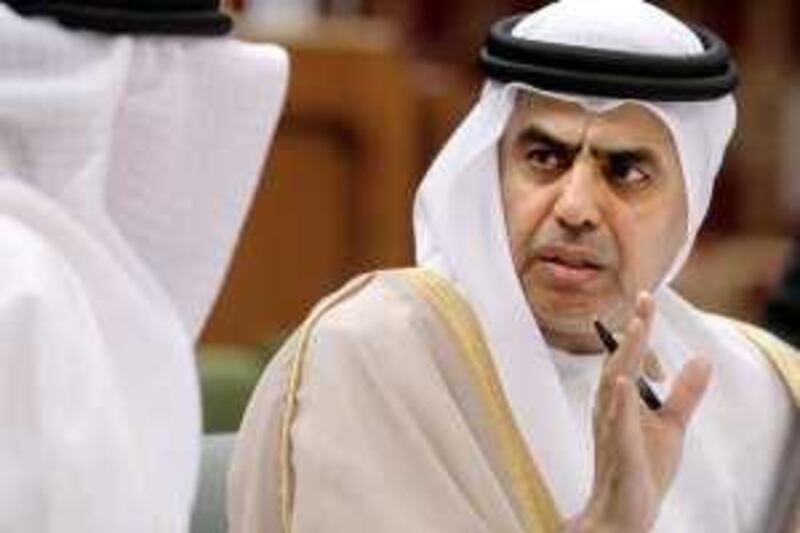The Federal National Council (FNC) yesterday passed new legislation regulating the issuance of government debt, in a crucial step towards developing local bond markets and easing the international credit squeeze. The move comes as regional economies increase spending to stoke economic growth and try to develop their capital markets while oil-fuelled budget surpluses shrink. "Every government has to borrow, even if it has enough money, so it doesn't use all of its financial resources in infrastructure projects," Obaid Humaid al Tayer, the Minister of State for Financial Affairs, said at the Federal National Council yesterday. "The debt is for infrastructure, not salaries." The new government bonds will be designed to create a benchmark debt pricing system, against which other local borrowers such as large companies will then be able to issue their own bonds, giving them access to new sources of capital. "The goal behind this law is to create a bonds market, where bonds can be issued for five, 10 or 30 years, as is the case in developed countries," Mr al Tayer said. Before the financial crisis, funding was widely available to local companies through international banks. But tightening international credit markets have forced banks to limit lending, encouraging regional governments to develop their bond markets. Analysts say that a more sophisticated local bond market, once created, will help relieve the squeeze. "This is very encouraging news. Now it's just a question of how fast they can implement it," said Mohieddine Kronfol, the managing director of asset management at Algebra Capital in Dubai. Other GCC governments have taken similar steps to encourage the development of local debt markets by issuing benchmark bonds. Bahrain, Qatar and Abu Dhabi have all announced new bond sales in the past three months, while Saudi Arabia last week launched a new local bond market. Once the bonds have been issued, GCC central banks will have access to new tools for managing their local economies. "This has massive implications. It creates a platform for the Central Bank to control liquidity. It sets the stage for them to be able to have their own monetary policy. It opens up the way for them to think about a different currency regime," Mr Kronfol said. According to the new law, the Federal Government will be allowed to tap international and local debt markets for as much as 45 per cent of the UAE's total GDP, or Dh300 billion (US$81.68bn), whichever is smaller, Mr al Tayer said. The individual emirates will be able to borrow only as much as 15 per cent of their own GDP. The two limits, which together add up to as much as 60 per cent of the country's GDP, will ensure the UAE does not borrow excessively. "The EU limited public debt to 60 per cent of the GDP as a condition for joining the union. The GCC states have also agreed on the same percentage," said Sultan al Suwaidi, the Central Bank Governor. "In the future, the Government will issue low-value bonds that can be [resold] by banks. We don't issue low-value bonds, which is a problem. These bonds can be available to the public, where they can buy them as a tool for saving." Until now, the Federal Government has never issued any foreign or local currency bonds. Abu Dhabi, Ras al Khaimah and Dubai all issued their first bonds within the past six years, although such issuances were relatively small. The largest issuance from an emirate government so far came in February, when Dubai announced a $20bn bond programme designed to alleviate a funding shortage. The draft law, which has yet to be rubber-stamped by the Supreme Council - made up of the rulers of the seven emirates - was debated for several hours before it was eventually passed, with Mr al Tayer voicing reservations about some of its provisions. Other concerns were raised by Dr Abdul Rahim Shahin, a representative from Ras al Khaimah, who said that a federal tax system should be in place before such a law was enacted. tpantin@thenational.ae mhabboush@thenational.ae
Bond law to boost economy
The FNC passes new legislation regulating the issuance of government debt to help ease the credit crunch.

Editor's picks
More from the national




